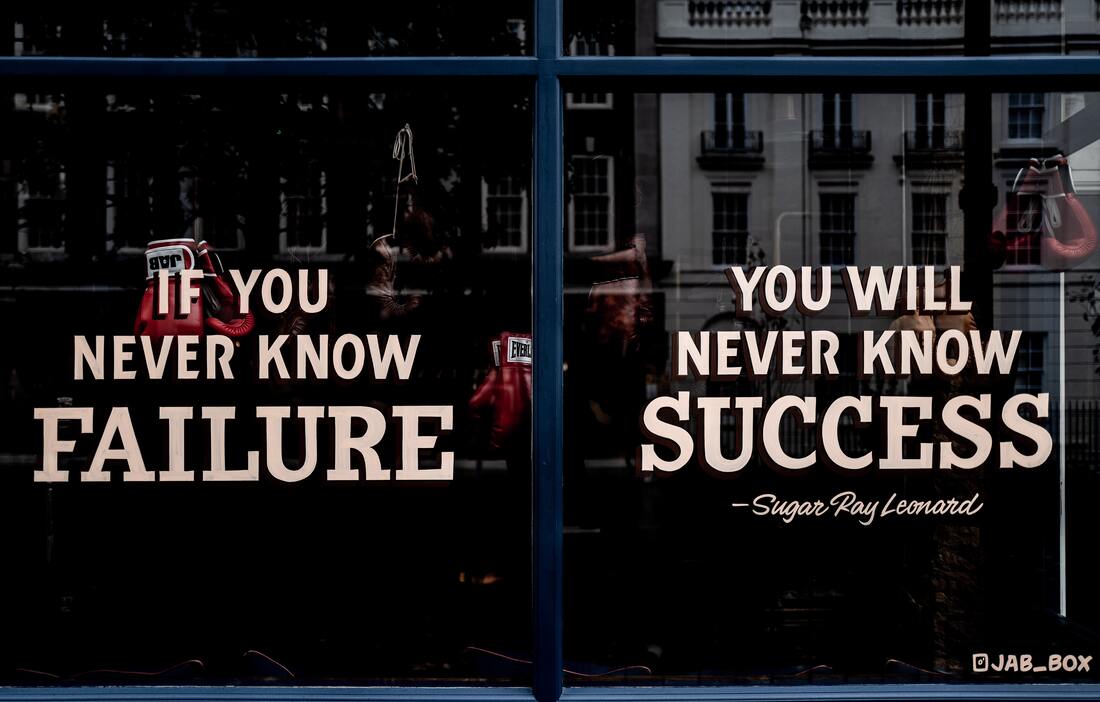 Photo by the blowup on Unsplash Rejection is inevitable. If you long to create, if you are burning with an idea, a song, a voice--then you will be heartbroken. Parents are usually bad teachers in the arts because this is a lesson they cannot shield you from--we are doomed to fail.
The moment you set foot on this path is the moment you are setting your sails to choppy seas and rocky shores. Whether you long to publish fantastical literature like The Sandman or offbeat serials like Bebop, it is not that the odds are tipped against you, and they are, but the fact that the world will not listen until you make them. Actors learn this first hand. Day in and day out, at least pre-COVID, we get on the bus, the train, the Uber to waltz through 100 degree heat and black ice to show up sweaty and tired to present our work to someone who likely doesn’t want to be there. Then, we go home or back to work and wait for an email that never comes. Writers must do the same thing. No one will read your unpublished work anymore than a blank page tells a story. Rejection is the norm. Artists must develop a balanced sense of humility and confidence. Confidence that their work is good enough, and humility to understand that they can improve. “A lesson any writer can use. Don’t be afraid. That simple; don’t let them scare you. There’s nothing they can do to you. If they kick you out of films, do TV. If they kick you out of TV, write novels. If they won’t buy your novels, sell short stories. Can’t do that, then take a job as a bricklayer. A writer always writes. That’s what he’s for.” -- Harlan Ellison The rules are often far simpler than we realize. How do we get stronger? We lift more weight than we did the day before. How do we do that? By showing up to the gym. How does an actor get more work? They audition more. How do they learn to deal with rejection? By being rejected again and again. How does a writer get published? He writes. He finishes it. He sends it out. It comes back, and he sends it out again. Then, during the process of waiting, he writes something else. If theses rules look familiar it is because they appeared in Heinlein’s Business Rules and were also featured in Neil Gaiman’s Masterclass. The rules are as follows:
We long for a secret, a connection. We rely on cliches such as, “It’s who you know,” but deep down we know that hard work creates luck and whether or not we have done the work to make the luck. These rules extend far beyond just writing. How do we increase sales? We have to reach out to clients, follow the lead, make the ask, and try again. How do we book a gig? We audition again and again, we work on passion projects, we share our work, we shout at the rafters, “Come see my work,” and we keep doing this again and again, storming past gatekeeper after gatekeeper, because, as the Marquis DeSade pointed out, and Charles Bukowski, and Harlan Ellison, and Heinrich von Kleist, “I don’t stop writing, because I cannot.” We share our work because it is like air we must breath. “If it does not come pouring out of you,” then you are wasting your time. How do you get paid? Become famous? Pack presceniums? Amass an empire? These are not questions we can answer, truthfully, because they are all predicated on the work, and the courage to share. Today, people go viral with a rip-off of a dance they saw on another medium, and yet we wonder why no one will read our story. There’s no such thing as an original idea? Bullshit. Sure Cormac McCarthy wrote it better on the back of Moby Dick beneath the wings of King James under the foundation of Shakespear, but fuck it all you are the first person to arrive, the first reader to read, the words you are putting, in this order, at this time, in this place. It may not seem like an act of bravery, but to face the blank page, the empty stage, the unknown lands from whose bourn no traveler returns, and to do it repeatedly takes courage. We can relent, or we can persevere. If this seems like me mesmerizing myself, in a way, it is. I have no delusions that often the words I write are meant to reinvigorate me here, and hopefully, although lesser than, inspire you. These are all things I must do better at, and also struggle to overcome. I write, and often do not finish. I finish, but do not publish or produce, let alone share. I audition, and fail and forget. I get cast, and still feel the weight of all the failures rather than the joy of creation. Yet, each day we must strive to beat the demon of resistance back. Each day we must be willing to face the blank page, the gatekeepers, the system of Sisyphus, and we must press on. In his Masterclass, Gaiman shares a story of the advice Harlan Ellison gave a you writer: what you’re writing is shit, what you need to write is really, really good stuff. Or, as Steve Martin said it best with his biography, “Be so good they can’t ignore you.”
0 Comments
Leave a Reply. |
Brock D. VickersThis is the beginning of a new part of life: a habit: an idea: a routine to dig at what makes a man great. Archives
January 2024
Categories |
 RSS Feed
RSS Feed